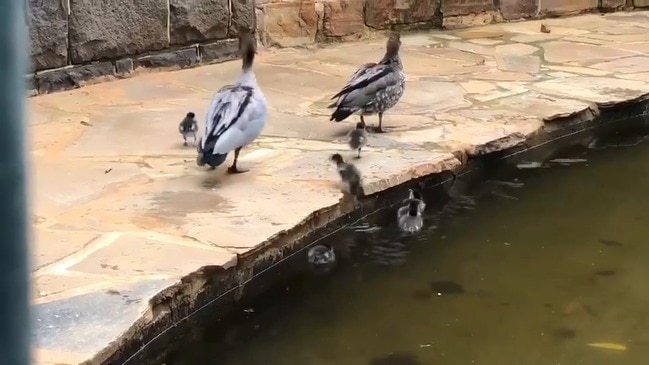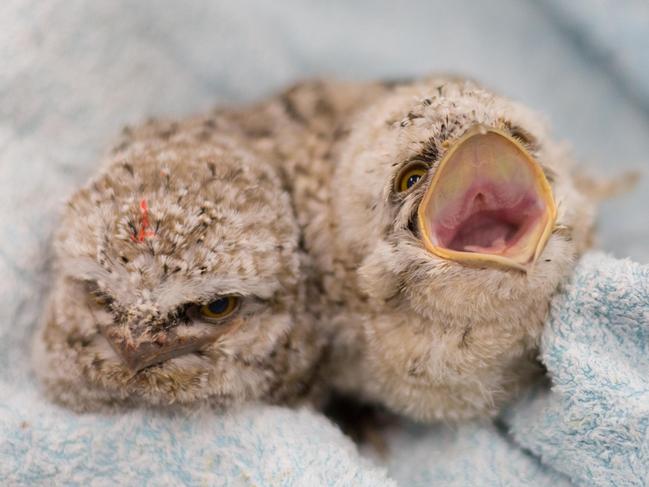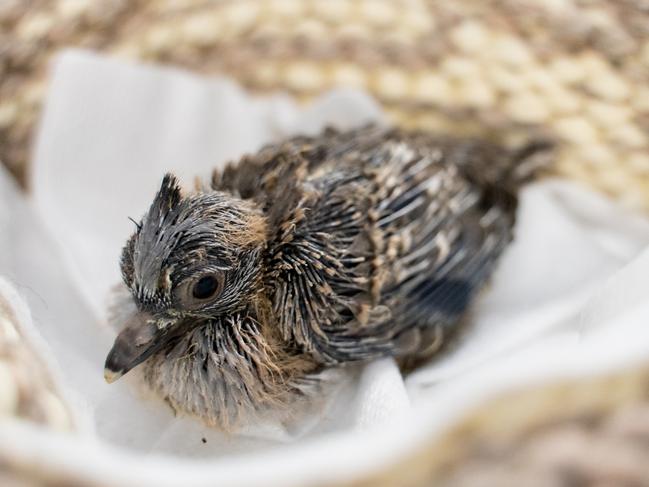Animal lovers are being asked to think twice before taking a wild chick from her parents
The RSPCA is urging animal lovers to think twice before taking a wild chick from her parents this breeding season.

QLD News
Don't miss out on the headlines from QLD News. Followed categories will be added to My News.
RSPCA veterinarians are urging animal lovers to think twice before taking a wild chick into the wildlife hospital.
About 90 patients a day, many of them baby birds, have been treated at the RSPCA Wildlife Hospital in Wacol in the past several weeks.
But RSPCA spokesman, Michael Beatty, said many of the birds should have been left alone.
“Sadly this happens all the time,” he said.
COCKATOO HANGS IN CAR IN WAKE OF STORM
SURVIVING OSPREY CHICK TAKES FLIGHT
COCKATOO CAUGHT ACTING THE GALAH ON CAMERA
“People think they’re doing the right thing by ‘rescuing’ chicks that are healthy and being looked after by their parents.
“They mean well but it often ends up very badly for the chicks.”

Mr Beatty said there although it was wise to take baby birds of a certain age to a vet, there were many that should be left alone after going through a checklist.
He also recommended keeping dogs and cats secure.
The RSPCA’s checklist of what to do if a baby bird is discovered:
Is the bird a nestling or a fledgling?
If you find a nestling, please take it to a vet or bring it in to the RSPCA as soon as possible.
If the bird has its flight feathers, then it is a fledgling.
Before rescuing a fledgling, ask yourself:
• Is the bird calling or making a noise?
• Is the bird bright and responsive?
• Can the bird perch on your finger?
• Can the bird spread its wings evenly and flutter to the ground when encouraged to fly?

If the answer to all of these questions is a definite “yes” then the baby bird should be able to be reunited with its parents, according to the RSPCA.
To try to reunite the baby bird with its parents, place the bird on a low branch in a bush and watch to see if the parents come to feed it.
You can also place the baby bird in a bucket with a few drainage holes.
The ‘home-away-from-home’ will protect fledglings and baby birds from predators.
